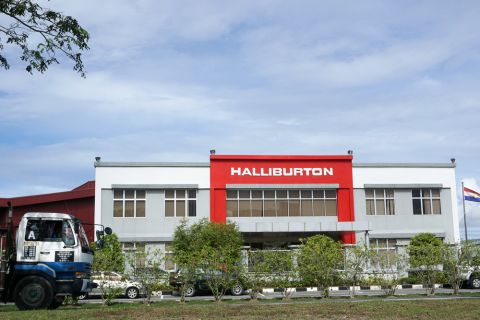Jennifer Pallanich, senior editor, technology, Hart Energy: I'm Jennifer Pallanich talking with Waterfall Security for Tech Trends with Hart Energy Live at OTC.
Lior Frenkel, Waterfall Security Solutions CEO: Today, hacking as a service is the way hacking happens. Criminal groups or state owned actors, they don't need to be [an] expert. They can just rent a high profile service, depending on how much they wanna invest in it, and those criminal groups have the capabilities, have the technology, have the cyber weapons and they just aim at the target and go.
JP: Wow. So, when you think about that, what are some of the trends that you're seeing oil and gas companies use to try to protect themselves from cyber attacks such as those?
LF: I think cybersecurity is, at the end, as anything else. There's no big magic here, there's no secrets that just the people in the industry knows. The same way that you treat your home security the same way that you treat your employee safety, you need to treat cybersecurity. I mean, you can't get on site today without this horrible yellow hats and the steel toed boots and sometimes a life vest. And you're not questioning that because you understand why, it's clear. The same thing needs to be done with cyber ... people need to understand the risk, which today, too many of them don't. So, they need to understand the risk, and once they understand the risk, they will act accordingly. If, and if they need to do something to support the cyber resilience of their operation, they'll just do that. It'll be baked inside the way that they operate. And, I'm happy to say that we are getting more inbound calls from the oil and gas industry inquiring about our human direction gateway technologies and how it can help them prevent from cyber attacks breaching into their control networks and offshore platforms and oil rigs and so forth.
Well, I think companies, especially in oil and gas today where we are post the colonial attack, they need to understand that they are targets and nobody wants to be in a situation where they need to shut down their operation again. And the main risk, the main attack vector by far from anything else is malware getting in or remote access getting in from the internet to your sites and shutting them down or forcing you to shut them down. That's the vector that you need to ... that's the vector that you need to be most concerned of, about, and the vector that you need to find ways to fix at the highest priority. And of course, this is what we at Waterfall Security focus on.
Every Tuesday, tune into Tech Trends with Hart Energy Live as we drill into the tech that fuels the oil patch. Learn about the latest tech trends at hartenergy.com/ep.
Recommended Reading
Rhino Taps Halliburton for Namibia Well Work
2024-04-24 - Halliburton’s deepwater integrated multi-well construction contract for a block in the Orange Basin starts later this year.
Halliburton’s Low-key M&A Strategy Remains Unchanged
2024-04-23 - Halliburton CEO Jeff Miller says expected organic growth generates more shareholder value than following consolidation trends, such as chief rival SLB’s plans to buy ChampionX.
Deepwater Roundup 2024: Americas
2024-04-23 - The final part of Hart Energy E&P’s Deepwater Roundup focuses on projects coming online in the Americas from 2023 until the end of the decade.
Ohio Utica’s Ascent Resources Credit Rep Rises on Production, Cash Flow
2024-04-23 - Ascent Resources received a positive outlook from Fitch Ratings as the company has grown into Ohio’s No. 1 gas and No. 2 Utica oil producer, according to state data.
E&P Highlights: April 22, 2024
2024-04-22 - Here’s a roundup of the latest E&P headlines, including a standardization MoU and new contract awards.






